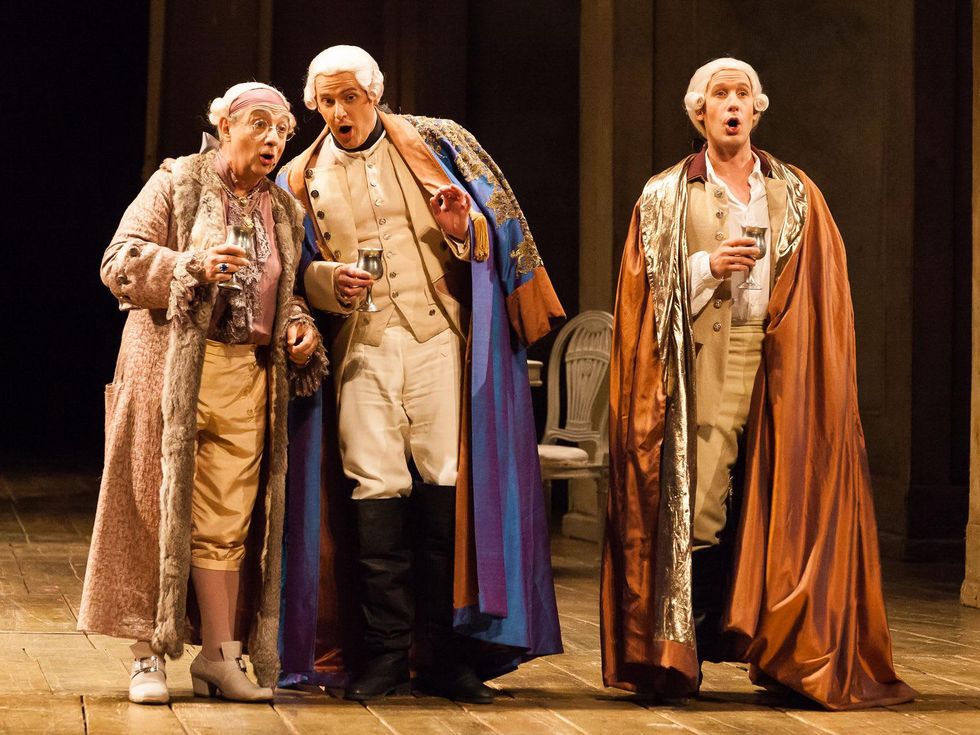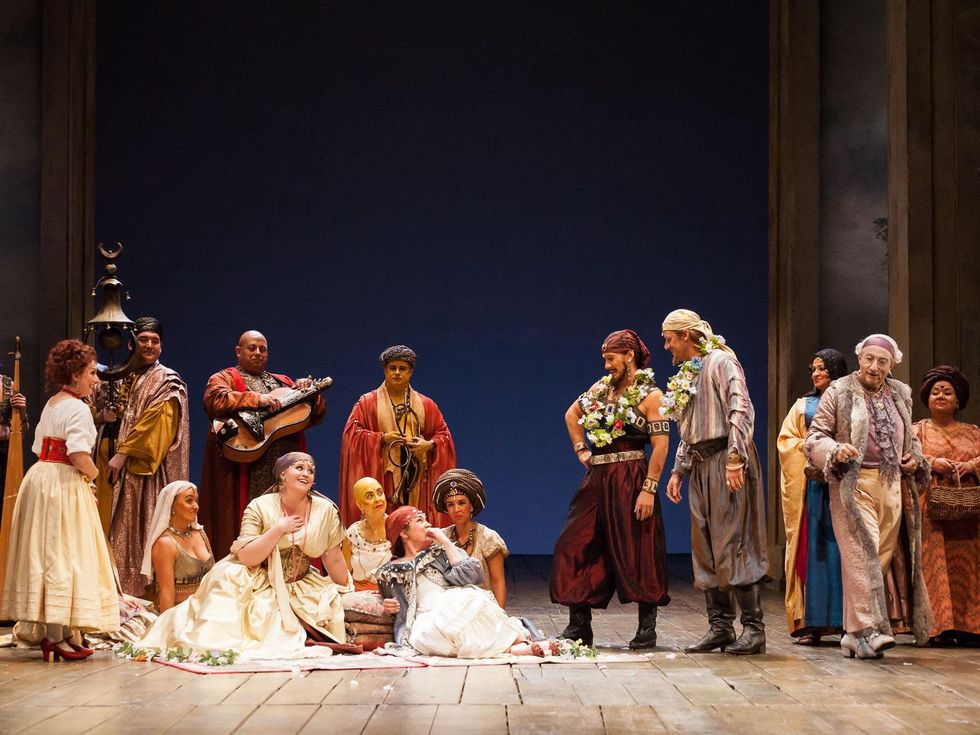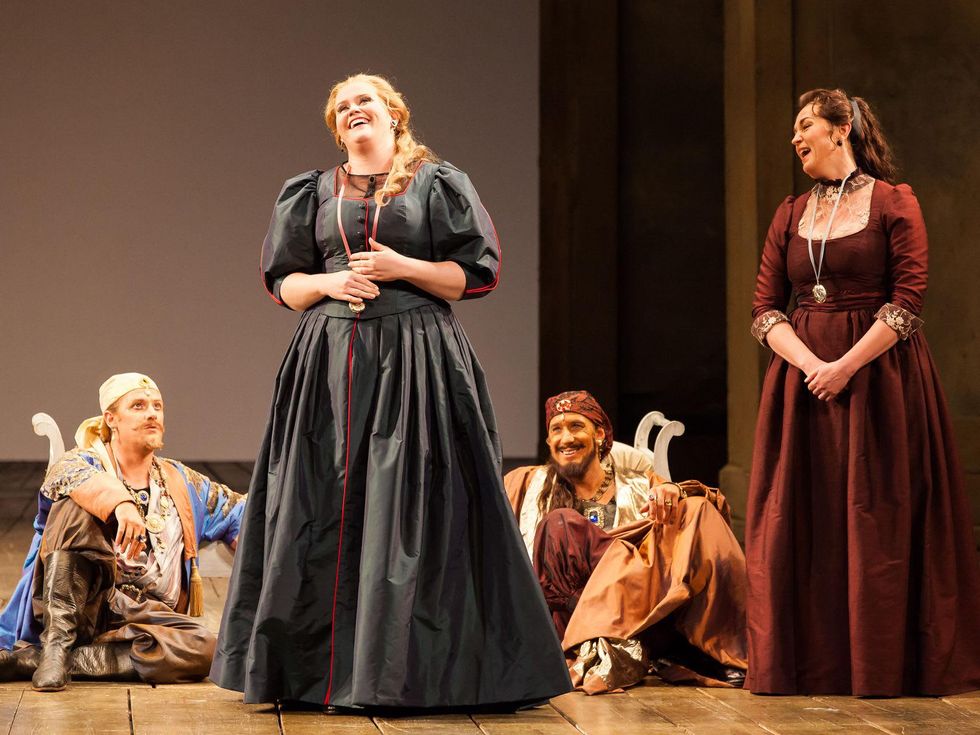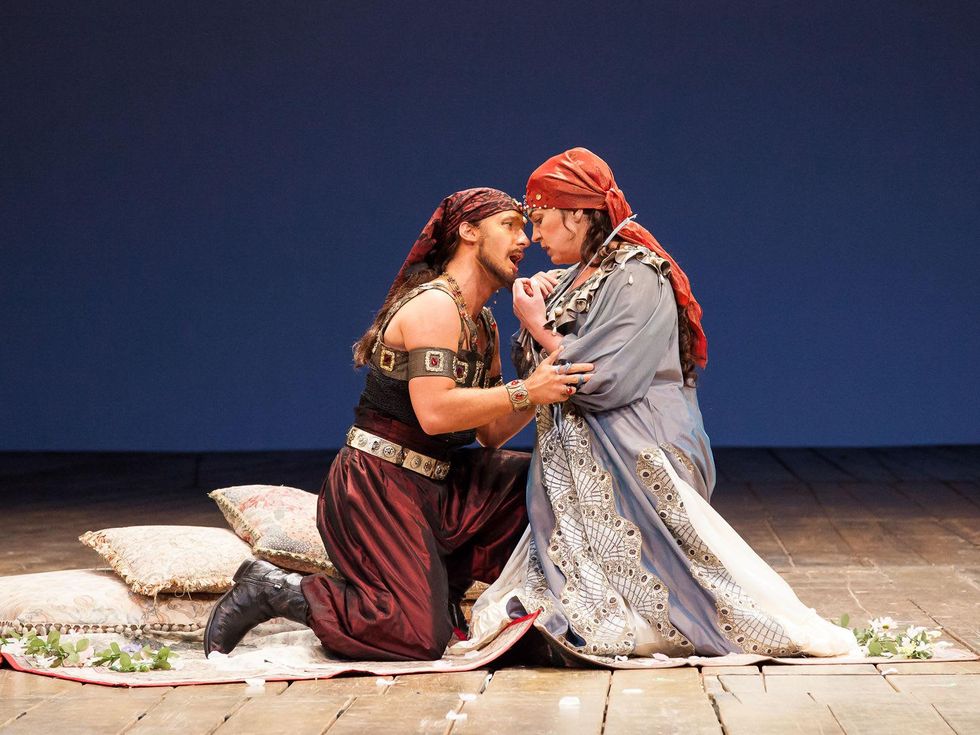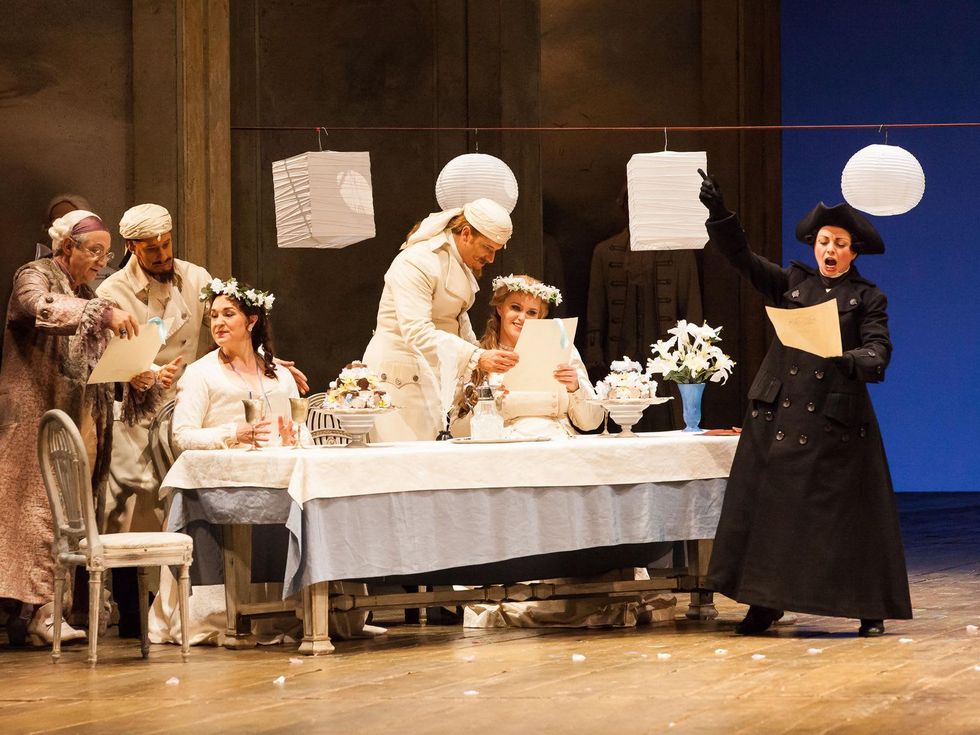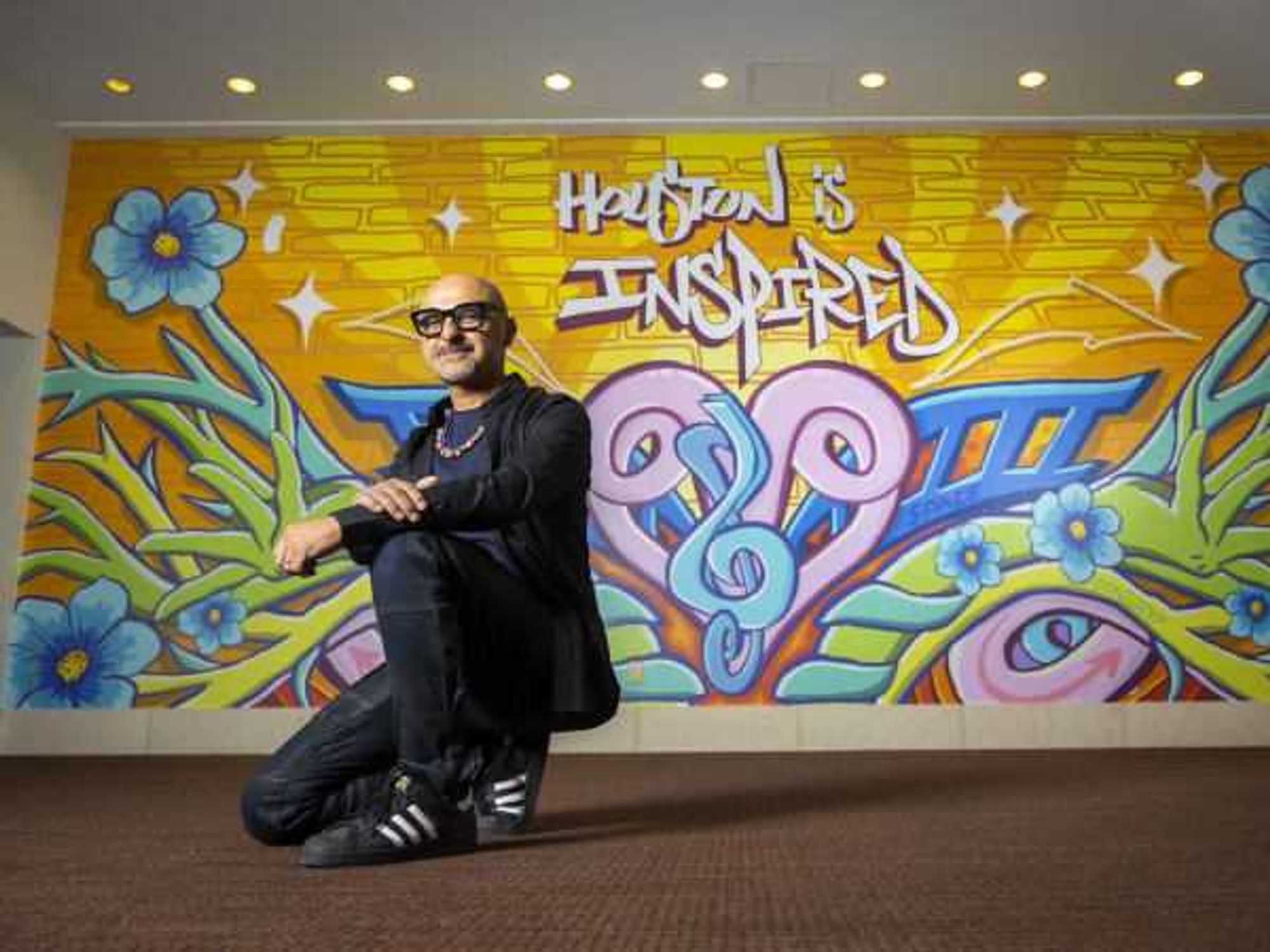The Review Is In
Stand-in steals the show in HGO's bland Cosi fan tutte, but the music still scores
Mozart’s Così fan tutte has always been, for me, just like an old friend. You know, the one who bugs you at times, and then comforts you at others. The friend who calls in the middle of the night, filled with surprises when you need them the most.
On the surface, Così is perhaps a bit more subtle than Don Giovanni, The Marriage of Figaro, or The Magic Flute, all of them undisputed masterpieces. Lorenzo Da Ponte’s libretto still has its complex moments, but it is largely without portent, making Così one of those deceptively down-to-earth operas.
I find it has an extraordinary musical continuity, as if Mozart had unleashed the whole of it in one breath. The recitative sections are integrated beautifully into the greater texture. The duets and ensemble passages arise naturally and retreat just as they are about to overwhelm you. In short, it is an opera of endless charm and deep sophistication.
I wish that Houston Grand Opera had chosen to do something a bit more creative with its current production.
I wish that Houston Grand Opera had chosen to do something a bit more creative with its current production, which opened Friday night at the Wortham. Gören Järvefelt and Carl Friedrich Oberle’s blah set, slightly transmuted here from its former service to both HGO’s The Marriage of Figaro and Don Giovanni, lacks color. The only adornment is a tacky harpsichord downstage that nobody ever bothers to play. Please! We know dollar-stretching when we see it.
The production might not have felt so neutral if it had changed, even a little bit, for the second act. But as the curtain went up following intermission, there we were again, in that same plain hallway. There are some weird anachronisms, such as a string of white paper lanterns in the wedding scene, that don’t quite make sense. They just aren’t ironic enough to be intriguing.
Fiordiligi and her sister Dorabella sleep on iron hospital beds in one scene. In another, they use Fiordiligi’s bathrobe as a kind of picnic blanket, since there isn’t anywhere else to sit. It feels as if their real furniture has been re-possessed, though nothing in the libretto suggests poverty.
The costumes are largely predictable and lack vivid theatricality, with the exception of some capes on the men. If only we’d had something colorful and unexpected, like the productions the Spanish Els Comediants team did for HGO’s Italian Girl in Algiers and Barber of Seville.
Musical rewards
If you can tolerate the visual boredom and plodding blocking by director Harry Silverstein, you might find some musical rewards. The HGO Orchestra under artistic and music director Patrick Summers provided a lively overture, along with pristine and inspired musicianship to follow, for the entire evening. Throughout, they conveyed that sense of transparent perfection one hopes for in Mozart.
His replacement, however, tenor Norman Reinhardt as Ferrando, was the unexpected star of the night.
Some of the singing was stellar. Perhaps Stephen Costello’s sudden absence due to illness threw the ensemble off at the last minute. His replacement, however, tenor Norman Reinhardt as Ferrando, was the unexpected star of the night.
Program notes explain that HGO last performed Così 14 years ago with nothing short of a stellar cast: Christine Goerke, Joyce DiDonato, Nathan Gunn, and Richard Croft. It’s hard to imagine that group disappointing anyone, especially during that time. I last saw Croft a few years ago as Gandhi in Philip Glass’ Satyagraha at the Metropolitan Opera. He has a voice from heaven.
The men in this Così all have magnetism, power, and confident intonation necessary for Mozart’s flowery phrasing. South African baritone Jacques Imbrailo as Guglielmo is funny and inspired and just keeps getting better as his voice continues to warm through the scenes. Italian baritone Alessandro Corbelli is a spectacular Don Alfonso and perhaps the liveliest actor in the opera.
Italian soprano Nuccia Focile is a disappointing Despina, with a hooty voice and wide vibrato that is really just an uncontrolled wobble. She should be the funniest among them, but she was having an off night on Friday, and she stuck out like a sore thumb in the ensembles.
American soprano Melody Moore is a stunning Dorabella, with a strong and lilting voice that shines alone and blends beautifully, particularly in her duets with Fiordiligi. Fans will remember her not only as Freia in Das Rheingold, but the strange Marta in HGO’s The Passenger.
I had a somewhat indifferent attitude towards Rachel Willis-Sørensen as Fiordiligi. She is a singer of limited palette, and also a mighty vibrato that borders on irritating. She came off as frumpy in a role that should have sex appeal.
Occasionally there is a small but powerful choral scene. If only Mozart had written a few more in this opera – the HGO chorus members brought a vivid intensity to these few cherished moments.
Alessandro Corbelli as Don Alfonso, from left, Norman Reinhardt as Ferrando and Jacques Imbrailo as Guglielmo in Houston Grand Opera's production of Così fan tutte.
